building a CUNY DH Community since 2010
Andrew Stauffer “Postcard from the Volcano: The Research Library after Wide-Scale Digitization,” Wed. 2/19, 6:30-8:30pm
On 13, Feb 2014 | In Uncategorized | By Amanda Licastro
Please join CUNY DHI and the Digital Praxis Seminar for a talk by Andrew Stauffer, “Postcard from the Volcano: The Research Library after Wide-Scale Digitization.”
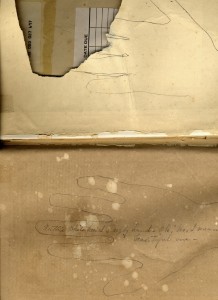 What will become of the print collections? As the historical record is translated to digital forms, academic research libraries are under pressure to manage down their physical holdings and repurpose stack space. In this presentation. I address our need as humanities scholars for a hybrid print-digital environment, one that takes rich advantage of digital technologies even as it finds new ways of seeing individual printed volumes. The 19th-century book — plentiful, out of copyright, often in poor condition — is at particular risk in the coming decade. My conviction is that the vulnerability of this material is bound up with its particular value to our cultural moment, that we are deaccessioning books at precisely the moment when we are most in need of their particular lessons regarding modern media, reading habits,and academic institutions. In this presentation, I focus primarily on personal marginalia in copies of nineteenth-century books, demonstrating the importance of individual copies to our understanding of what books as media – especially books of poetry – were for. In addition, I introduce several initiatives aimed at getting scholars and library policy makers together to chart a course for the future of the print record in our libraries.
What will become of the print collections? As the historical record is translated to digital forms, academic research libraries are under pressure to manage down their physical holdings and repurpose stack space. In this presentation. I address our need as humanities scholars for a hybrid print-digital environment, one that takes rich advantage of digital technologies even as it finds new ways of seeing individual printed volumes. The 19th-century book — plentiful, out of copyright, often in poor condition — is at particular risk in the coming decade. My conviction is that the vulnerability of this material is bound up with its particular value to our cultural moment, that we are deaccessioning books at precisely the moment when we are most in need of their particular lessons regarding modern media, reading habits,and academic institutions. In this presentation, I focus primarily on personal marginalia in copies of nineteenth-century books, demonstrating the importance of individual copies to our understanding of what books as media – especially books of poetry – were for. In addition, I introduce several initiatives aimed at getting scholars and library policy makers together to chart a course for the future of the print record in our libraries.
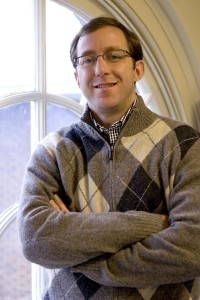 Andrew Stauffer is associate professor of English at the University of Virginia, where he also serves as Director of NINES (Networked Infrastructure for Nineteenth-century Electronic Scholarship) and a member of the teaching faculty of the Rare Book School. He is the author of _Anger, Revolution, and Romanticism_ (Cambridge UP, 2005) and the editor of works by Robert Browning (for Norton) and H. Rider Haggard (for Broadview), and he has published widely on nineteenth-century literature. Stauffer has served as principal investigator on digital humanities grants from Google (for Juxta) and the NEH, and he has received fellowships from the NEH, the ACLS, the Huntington, and the NYPL. His current book project is “Postcard from the Volcano: The Troubled Archive of Nineteenth Century Literature.”
Andrew Stauffer is associate professor of English at the University of Virginia, where he also serves as Director of NINES (Networked Infrastructure for Nineteenth-century Electronic Scholarship) and a member of the teaching faculty of the Rare Book School. He is the author of _Anger, Revolution, and Romanticism_ (Cambridge UP, 2005) and the editor of works by Robert Browning (for Norton) and H. Rider Haggard (for Broadview), and he has published widely on nineteenth-century literature. Stauffer has served as principal investigator on digital humanities grants from Google (for Juxta) and the NEH, and he has received fellowships from the NEH, the ACLS, the Huntington, and the NYPL. His current book project is “Postcard from the Volcano: The Troubled Archive of Nineteenth Century Literature.”
Also, join NYC DH for a #digibar meet-up after this event at The Archive. Updates posted here: http://nycdh.org/groups/digibar/
Simone Browne on Race, Surveillance, and Technology – Mon 12/9, 4:15pm-5:30pm, Skylight Room (9100)
On 26, Nov 2013 | In Events of Interest | By Laura Kane
Please join CUNY DHI and the Digital Praxis Seminar for a talk by Simone Browne on race, surveillance, and technology.
This lecture will be livestreamed at 4:15pm on Dec. 9, 2013
Dark Sousveillance: Surveillance, Race and Resistance
Since its emergence, surveillance studies has been primarily concerned with how and why populations are tracked, profiled, policed, and governed at state borders, in cities, at airports, in public and private spaces, through biometrics, closed-circuit television, identification documents, social media and other technologies. Also of focus are the many ways that those who are often subject to surveillance subvert, adopt, endorse, invite, resist, innovate, limit, comply with and monitor that very surveillance. As an interdisciplinary field of study the questions that shape surveillance studies center on the management of everyday and exceptional life – personal data, privacy, security, and terrorism, for example. While “race” might be a term found in the index of many of the recent edited collections and special journal issues dedicated to the study of surveillance, within the field questions of Blackness remain under-theorized.
Situating Blackness as an absented presence in the field of surveillance studies, this talk questions how the intimate relation between branding and the black body – our biometric past – can allow us to think critically about our biometric present.
About the Speaker
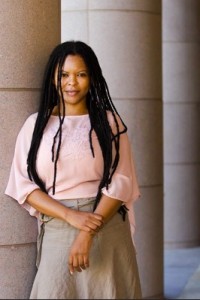 Simone Browne is Assistant Professor in the Department African and African Diaspora Studies at the University of Texas at Austin. She teaches and researches surveillance studies, biometrics, airport protocol, popular culture, digital media and black diaspora studies.
Simone Browne is Assistant Professor in the Department African and African Diaspora Studies at the University of Texas at Austin. She teaches and researches surveillance studies, biometrics, airport protocol, popular culture, digital media and black diaspora studies.
Tom Scheinfeldt, “Making Hay: Lessons in Collaboration from One Week | One Tool ” – Mon 11/25, 4:15pm-5:30pm, Skylight Room (9100)
On 19, Nov 2013 | In Events of Interest | By Laura Kane
Please join CUNY DHI and the Digital Praxis Seminar for a talk by Tom Scheinfeldt on DH Project Management.
Making Hay: Lessons in Collaboration from One Week | One Tool
Digital Humanities projects are rarely blessed with abundant, or even
adequate, resoruces. Staff, skills, equipment, and money are almost
always tight. The experience of One Week | One Tool
(http://oneweekonetool.org), an NEH Institute for Advanced Topics in
Digital Humanties, demonstrates that time and resource constraints can
be made to work in a project’s favor. First in 2010 and again in 2013,
One Week | One Tool brought together a diverse group of academic and
cultural professionals to conceive, plan, build, and launch an open
source software tool in only seven days. Despite, or perhaps because
of, these strict contraints, both groups succeeded in releasing what
have proved to be extremely well-used tools for humanities research:
Anthologize and Serendip-o-matic. This talk will explore some of the
lessons learned from One Week | One Tool for collaboration and project
management in digital humanities and the academic work at large.
About the Speaker
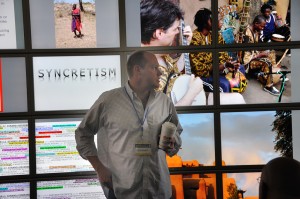 Tom Scheinfeldt is Associate Professor of Digital Media and Design and Director of Digital Humanities in the Digital Media Center at the University of Connecticut. Formerly Managing Director of the Roy Rosenzweig Center for History and New Media at George Mason University, Tom has directed several award-winning digital humanities projects, including THATCamp, Omeka, and the September 11 Digital Archive. Trained as an historian of science and public historian with a bachelor’s degree from Harvard and master’s and doctoral degrees from Oxford, Tom has written and lectured extensively about the history of museums and the role of history in culture. Among his publications, Tom is a recent contributor to Debates in Digital Humanities (University of Minnesota Press) and co-editor of Hacking the Academy (University of Michigan Press). Tom blogs about digital humanities and the business of digital humanities at Found History and co-hosts the Digital Campus podcast will his colleagues Dan Cohen, Amanda French, Mills Kelly, and Stephen Robertson. You can follow Tom on Twitter (@foundhistory) and LinkedIn (http://www.linkedin.com/in/tomscheinfeldt/).
Tom Scheinfeldt is Associate Professor of Digital Media and Design and Director of Digital Humanities in the Digital Media Center at the University of Connecticut. Formerly Managing Director of the Roy Rosenzweig Center for History and New Media at George Mason University, Tom has directed several award-winning digital humanities projects, including THATCamp, Omeka, and the September 11 Digital Archive. Trained as an historian of science and public historian with a bachelor’s degree from Harvard and master’s and doctoral degrees from Oxford, Tom has written and lectured extensively about the history of museums and the role of history in culture. Among his publications, Tom is a recent contributor to Debates in Digital Humanities (University of Minnesota Press) and co-editor of Hacking the Academy (University of Michigan Press). Tom blogs about digital humanities and the business of digital humanities at Found History and co-hosts the Digital Campus podcast will his colleagues Dan Cohen, Amanda French, Mills Kelly, and Stephen Robertson. You can follow Tom on Twitter (@foundhistory) and LinkedIn (http://www.linkedin.com/in/tomscheinfeldt/).
Katina Rogers on Alt-Academic Careers: Mon 11/18, 4:15p-5:30p Rooms 9204/9205
On 11, Nov 2013 | In Events of Interest | By Laura Kane
Please join CUNY DHI and the Digital Praxis Seminar for a talk by Katina Rogers on Alt-Academic Careers.
Katina Rogers – Alt-Academic Careers
While many graduate programs continue to focus on tenure track placement rates, a growing proportion of humanities scholars are embracing a much broader range of intellectually stimulating careers in, around, and beyond the academy. Focusing both on her own career path and on her research at the Modern Language Association, the Scholarly Communication Institute, and the Scholars’ Lab at the University of Virginia, Katina Rogers will discuss strategies to support professionalization, public scholarship, and career development across a wide array of possible outcomes.
About the Speaker
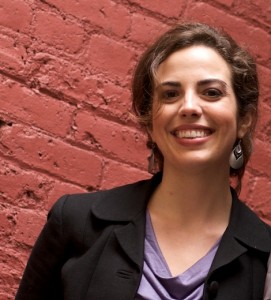 Katina Rogers is managing editor of MLA Commons, the Modern Language Association’s new online platform for collaboration and scholarly communication. She previously served as Senior Research Specialist with the Scholarly Communication Institute, a Mellon-funded humanities think tank based in the University of Virginia’s Scholars’ Lab. Her current research focuses on graduate education reform, career paths for humanities scholars, and innovative modes of scholarly production. Katina holds a Ph.D. in Comparative Literature from the University of Colorado.
Katina Rogers is managing editor of MLA Commons, the Modern Language Association’s new online platform for collaboration and scholarly communication. She previously served as Senior Research Specialist with the Scholarly Communication Institute, a Mellon-funded humanities think tank based in the University of Virginia’s Scholars’ Lab. Her current research focuses on graduate education reform, career paths for humanities scholars, and innovative modes of scholarly production. Katina holds a Ph.D. in Comparative Literature from the University of Colorado.
Ray Siemens, “Building Blocks of the Social Scholarly Edition” – Mon 11/11, 4:15p-5:30p, Rooms 9204/9205
On 06, Nov 2013 | In Events of Interest | By Laura Kane
Please join CUNY DHI and the Digital Praxis Seminar for a talk by Ray Siemens on the digital social edition.
“Building Blocks of the Social Scholarly Edition”
This talk explores elements of the scholarly edition in the context of new and emerging social media from two pertinent perspectives: the first from the foundational perspective of its theoretical context, particularly as that context intersects with a utility-based consideration of the toolkit that allows us to consider the social edition as an extension of the traditions in which it is situated and which it has the potential to inform productively; the second is from the perspective of an iterative implementation of one such edition, A Social Edition of the Devonshire MS [BL Add MS 17,492] (http://en.wikibooks.org/wiki/The_Devonshire_Manuscript), carried out via a research team operating in conjunction with an advisory group representing key expertise in the methods and content-area embraced by the edition.
About the Speaker
 Ray Siemens (http://web.uvic.ca/~siemens) is Canada Research Chair in Humanities Computing and Distinguished Professor in the Faculty of Humanities at the University of Victoria, in English and Computer Science, and visiting professor at NYU in 2013. He is founding editor of the electronic scholarly journal Early Modern Literary Studies, and his publications include, among others, Blackwell’s Companion to Digital Humanities (with Schreibman and Unsworth), Blackwell’s Companion to Digital Literary Studies (with Schreibman), A Social Edition of the Devonshire MS, and Literary Studies in the Digital Age (MLA, with Price). He directs the Implementing New Knowledge Environments project, the Digital Humanities Summer Institute and the UVic Electronic Textual Cultures Lab, and serves as Vice President of the Canadian Federation of the Humanities and Social Sciences for Research Dissemination and Chair of the Modern Language Association’s Committee on Scholarly Editions, recently serving also as Chair of the international Alliance of Digital Humanities Organisations’ Steering Committee.
Ray Siemens (http://web.uvic.ca/~siemens) is Canada Research Chair in Humanities Computing and Distinguished Professor in the Faculty of Humanities at the University of Victoria, in English and Computer Science, and visiting professor at NYU in 2013. He is founding editor of the electronic scholarly journal Early Modern Literary Studies, and his publications include, among others, Blackwell’s Companion to Digital Humanities (with Schreibman and Unsworth), Blackwell’s Companion to Digital Literary Studies (with Schreibman), A Social Edition of the Devonshire MS, and Literary Studies in the Digital Age (MLA, with Price). He directs the Implementing New Knowledge Environments project, the Digital Humanities Summer Institute and the UVic Electronic Textual Cultures Lab, and serves as Vice President of the Canadian Federation of the Humanities and Social Sciences for Research Dissemination and Chair of the Modern Language Association’s Committee on Scholarly Editions, recently serving also as Chair of the international Alliance of Digital Humanities Organisations’ Steering Committee.
Kathleen Fitzpatrick, “Open Review, the New Peer, and the Future of Scholarly Communication” – Mon, 11/4, 4:15pm-5:30pm, Room 9206/9207
On 30, Oct 2013 | In Events of Interest | By Laura Kane
Kathleen Fitzpatrick: “Open Review, the New Peer, and the Future of Scholarly Communication”
About The Speaker
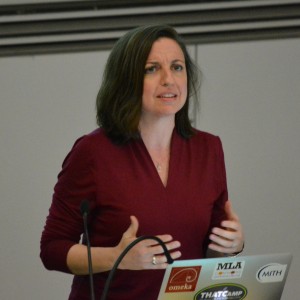 Kathleen Fitzpatrick is Director of Scholarly Communication of the Modern Language Association and Visiting Research Professor of English at NYU. She is author of Planned Obsolescence: Publishing, Technology, and the Future of the Academy (NYU Press, 2011) and of The Anxiety of Obsolescence: The American Novel in the Age of Television (Vanderbilt University Press, 2006). She is co-founder of the digital scholarly network MediaCommons, where she has led a number of experiments in open peer review and other innovations in scholarly publishing.
Kathleen Fitzpatrick is Director of Scholarly Communication of the Modern Language Association and Visiting Research Professor of English at NYU. She is author of Planned Obsolescence: Publishing, Technology, and the Future of the Academy (NYU Press, 2011) and of The Anxiety of Obsolescence: The American Novel in the Age of Television (Vanderbilt University Press, 2006). She is co-founder of the digital scholarly network MediaCommons, where she has led a number of experiments in open peer review and other innovations in scholarly publishing.
Larry Smarr on Digital Culture and the Future Internet: Wed, 10/30
On 28, Oct 2013 | In Uncategorized | By Amanda Licastro
Wednesday, Oct 30th, 2013, 6:00pm, Room C205 at the Graduate Center, CUNY.
This event is co-sponsored by the the DH Praxis Seminar and the Center for the Humanities: http://centerforthehumanities.org/events/Digital-Culture-and-the-Future-Internet.
This event is free and open to the public, registration is not mandatory.
Please reserve you space here: http://cunydhi-smarr.eventbrite.com
Larry Smarr
Professor Larry Smarr is a physicist and leader in scientific computing, supercomputer applications, and Internet infrastructure at the University of California, San Diego. In 2000, Smarr moved to California and proposed the creation of the California Institute for Telecommunications and Information Technology (Calit2), linking departments and researchers at UCSD and UC Irvine. Smarr currently serves as Institute Director of Calit2.
Digital Culture and the Future Internet
Join Larry Smarr, founding Director of the California Institute for Telecommunications and Information Technology (Calit2), as he explores the future of the Internet and digital culture. The Institute develops next generation of information technologies, including optical networks, information visualization, and global telepresence. Under Smarr’s leadership, Calit2 also supports a wide range of innovative projects in digital humanities and in digital art. In these projects, humanists and artists collaborate with scientists to explore potential of new technologies which will not become widely available for another 10-15 years.
To join the digital conversation, use the hash tags: #digitalgc and #cunydhi
William J. Turkel, ” The Hands-On Imperative”- Mon 10/21, 4:15pm-5:30pm, Skylight Room (9100)
On 17, Oct 2013 | In Events of Interest | By Amanda Licastro
Please join CUNY DHI and the Digital Praxis Seminar in welcoming William Turkel for a talk on physical computing and the humanities.
This event will take place Monday, 10/21, from 4:15pm-5:30pm, in the Skylight Room (9100).
This event is free to attend and open to the public. We request you RSVP here, but registration is not mandatory:
http://cunydhi-turkel.eventbrite.com/
William Turkel is engaged in computational history, big history, STS, physical computing, desktop fabrication and electronics. His new monograph, Spark from the Deep, is now available. Turkel is currently working on a study of attempts to build a self-replicating device, from the machine tools of the Industrial Revolution to the RepRaps of today. As part of this research, he has built a series of 3D printers and other CNC tools. The other project Turkel is working on is a study of mid-20th-century analog electronic computing. Turkel teaches Max 6 programming to undergraduates in Western’s new digital humanities option, and to grad students in the interactive exhibit design course. Turkel is also teaching a new graduate course on digital research methods that makes use of command line tools in Linux virtual machines. You can find him on Twitter at @williamjturkel
Matthew G. Kirschenbaum, “Track Changes: The Literary History of Word Processing” – Oct 15, 4:15-5:30pm – Room C204/C205
On 14, Oct 2013 | In Meetings | By Matthew K. Gold
Please join us for a talk by Matthew Kirschenbaum on his forthcoming book project, which was recently profiled in the New York Times: The Muses of Insert, Delete and Execute. Matt’s visit is made possible by the Office of the Provost at the Graduate Center and is being made in connection with the Digital Praxis Seminar.
This event will take place on Tuesday, October 15, 2013 from 4:15-5:30pm at the Graduate Center, CUNY in C204/205 (Concourse Level). Please join us!
—
Track Changes: The Literary History of Word Processing
Mark Twain famously prepared the manuscript for Life on the Mississippi (1883) with his new Remington typewriter, the first literary text ever submitted to a publisher in typewritten form. Today we recognize that the typewriter changed the history and material culture of authorship. But when did writers begin using word processors? Who were the early adopters? How did the technology change their relationship to their craft? Was the computer just a better typewriter—faster, easier to use—or was it something more? And what will be the fate of today’s “manuscripts,” which take the form of electronic files in folders on hard drives, instead of papers in hard copy? This talk, drawn from the speaker’s forthcoming book on the subject, will provide some answers, and also address questions related to the challenges of conducting research at the intersection of literary and technological history.
—
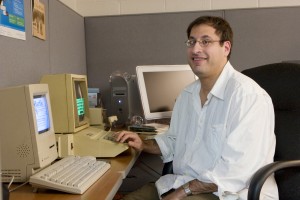 Matthew G. Kirschenbaum is Associate Professor in the Department of English at the University of Maryland and Associate Director of the Maryland Institute for Technology in the Humanities (MITH, an applied thinktank for the digital humanities). He is also an affiliated faculty member with the College of Information Studies at Maryland, and a member of the teaching faculty at the University of Virginia’s Rare Book School. His first book, Mechanisms: New Media and the Forensic Imagination, was published by the MIT Press in 2008 and won the 2009 Richard J. Finneran Award from the Society for Textual Scholarship (STS), the 2009 George A. and Jean S. DeLong Prize from the Society for the History of Authorship, Reading, and Publishing (SHARP), and the 16th annual Prize for a First Book from the Modern Language Association (MLA). In 2010 he co-authored (with Richard Ovenden and Gabriela Redwine) Digital Forensics and Born-Digital Content in Cultural Heritage Collections, a report published by the Council on Library and Information Resources and recognized with a commendation from the Society of American Archivists.Kirschenbaum speaks and writes often on topics in the digital humanities and new media; his work has received coverage in the Atlantic, Slate, New York Times, The Guardian, National Public Radio, Wired, Boing Boing, Slashdot, and the Chronicle of Higher Education. His current book project is entitled Track Changes: A Literary History of Word Processing, and is under contract to Harvard University Press. He is a 2011 Guggenheim Fellow. See http://www.mkirschenbaum.net for more.
Matthew G. Kirschenbaum is Associate Professor in the Department of English at the University of Maryland and Associate Director of the Maryland Institute for Technology in the Humanities (MITH, an applied thinktank for the digital humanities). He is also an affiliated faculty member with the College of Information Studies at Maryland, and a member of the teaching faculty at the University of Virginia’s Rare Book School. His first book, Mechanisms: New Media and the Forensic Imagination, was published by the MIT Press in 2008 and won the 2009 Richard J. Finneran Award from the Society for Textual Scholarship (STS), the 2009 George A. and Jean S. DeLong Prize from the Society for the History of Authorship, Reading, and Publishing (SHARP), and the 16th annual Prize for a First Book from the Modern Language Association (MLA). In 2010 he co-authored (with Richard Ovenden and Gabriela Redwine) Digital Forensics and Born-Digital Content in Cultural Heritage Collections, a report published by the Council on Library and Information Resources and recognized with a commendation from the Society of American Archivists.Kirschenbaum speaks and writes often on topics in the digital humanities and new media; his work has received coverage in the Atlantic, Slate, New York Times, The Guardian, National Public Radio, Wired, Boing Boing, Slashdot, and the Chronicle of Higher Education. His current book project is entitled Track Changes: A Literary History of Word Processing, and is under contract to Harvard University Press. He is a 2011 Guggenheim Fellow. See http://www.mkirschenbaum.net for more.
David Mimno on Topic Modeling with MALLET, September 30th, 4:15-5:30pm
On 29, Sep 2013 | In Meetings | By Matthew K. Gold
Please join CUNY DHI and the Digital Praxis Seminar for a talk by David Mimno on Topic Modeling with MALLET.
This event will take place on Monday, September 30, 2013 from 4:15-5:30pm at the Graduate Center, CUNY in the 9th floor Skylight Room.
Details are below – we look forward to seeing you there! Please RSVP here.
In the last ten years we have seen the creation of massive digital text collections, from Twitter feeds to million-book libraries, all in dozens of languages. At the same time, researchers have developed text mining methods that go beyond simple word frequency analysis to uncover thematic patterns. When we combine big data with powerful algorithms, we enable analysts in many different fields to enhance qualitative perspectives with quantitative measurements. But these methods are only useful if we can apply them at massive scale and distinguish consistent patterns from random variations. In this talk I will describe my work building reliable topic modeling methodologies for humanists, social scientists and science policy officers.
Bio:
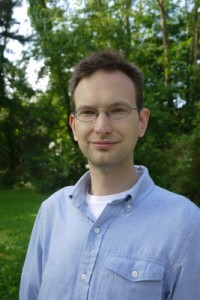 David Mimno is an assistant professor in the Information Science department at Cornell University. His research is on developing machine learning models and algorithms, with a particular focus on applications in Humanities and Social Science. He received his BA in Classics and Computer Science from Swarthmore College and PhD in Computer Science from the University of Massachusetts, Amherst. He was a CRA Computing Innovation fellow at Princeton University. Before graduate school, he served as Head Programmer at the Perseus Project, a digital library for cultural heritage materials, at Tufts University. Mimno is currently chief architect for the MALLET machine learning toolkit.
David Mimno is an assistant professor in the Information Science department at Cornell University. His research is on developing machine learning models and algorithms, with a particular focus on applications in Humanities and Social Science. He received his BA in Classics and Computer Science from Swarthmore College and PhD in Computer Science from the University of Massachusetts, Amherst. He was a CRA Computing Innovation fellow at Princeton University. Before graduate school, he served as Head Programmer at the Perseus Project, a digital library for cultural heritage materials, at Tufts University. Mimno is currently chief architect for the MALLET machine learning toolkit.


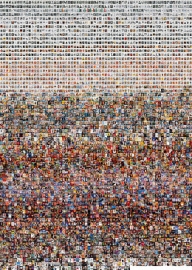
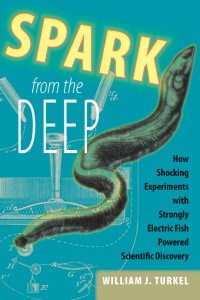
 Welcome to the blog of the CUNY DHI, an effort to build momentum and community around Digital Humanities practitioners at CUNY. We hope you'll join us at our upcoming events and that you'll follow this blog to hear about the latest news in the field.
Welcome to the blog of the CUNY DHI, an effort to build momentum and community around Digital Humanities practitioners at CUNY. We hope you'll join us at our upcoming events and that you'll follow this blog to hear about the latest news in the field.



Recent Comments